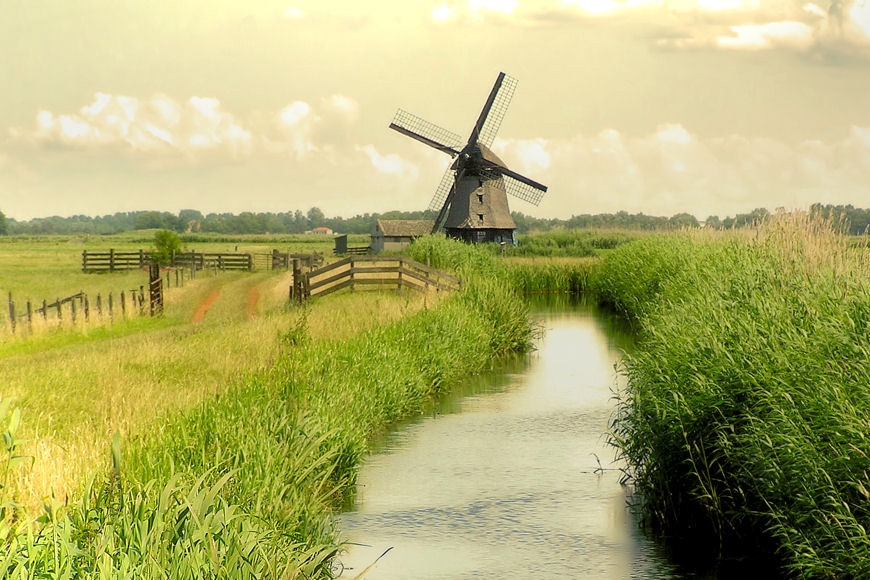Dutch

Did you know?
Dutch is the official language of
the Netherlands, Flemish Belgium,
Suriname, and the Dutch Antilles.
The Dutch expertise with water
challenges makes the Netherlands
the go-to partner for water
management solutions.
The Netherlands and the US
are strong collaborators in the
protection of human rights,
justice, and equality.
The Netherlands is one of the
world’s largest agricultural
exporters.
The Netherlands is a leader
in environmental sustainability
that promotes economic growth.
Some of the largest multinational
corporations in the world have
their headquarters in the
Netherlands.
The strong ties between the
Netherlands and the US have
a long history—the United
States Constitution was
translated in 1788 into German
and Dutch for the German-
and Dutch-speaking populations
of Pennsylvania and New York.
How has the Dutch-speaking world had such an enormous impact on global business, the politics of health care, environmental policy, international law, the fine arts, and architecture? How did the Netherlands become a model for the political, social, and economic revolutions that shaped our contemporary world?
Learning Dutch is more than just learning a language—it opens a window to the creative, ethical, and moral debates of our times. While the US debates gay marriage, legalization of drugs, prostitution, terminal care, pension, and healthcare reform, the Dutch have forged creative and practical solutions that maximize the individual's rights and freedoms while adhering to ethical standards and the dignity of life.
Study Dutch and find out why it is so unique. Dutch language study is very rewarding; you'll be reading Dutch easily and speaking confidently within semesters. Most importantly, you will gain insight into the worldly and creative Dutch culture and open your mind to new possibilities for building international dimensions into your education. Opportunities exist for continuing and perfecting your Dutch through further study in the Netherlands or Dutch-speaking Belgium.
Earn a certificate
The Department of German, Nordic, Slavic & Dutch is a testing center for the "Certificaat Nederlands als Vreemde Taal," a proficiency test taken by learners of Dutch worldwide who want to earn an internationally recognized language certificate. Students can choose from different levels (A2–C1) and profiles, depending on their purpose with the language: touristic, professional, academic.
What students of Dutch say about the program
“Even though the U does not offer Afrikaans classes, by taking Dutch I was able to go to South Africa this summer and learn in Cape Town. The thorough Dutch curriculum gave me a strong vocabulary and grammatical base to work from, allowing me to jump in and accelerate my learning of Afrikaans.”
“Learning a language is incredibly important. It helps you understand another culture and become more open to new experiences. Dutch is closely related to English, so it is one of the easiest languages for non-native speakers to learn.”
“I took Dutch because it's a globally relevant language, spoken in one of the most advanced countries on earth with a large internet presence. You can benefit from the culture and ideas of the Netherlands and Flanders just as they do from ours.”
“The class size is very small and it makes learning the language fun and enjoyable and creates a really great classroom community.”
“If you have experience from German in high school, picking up Dutch should come easy to you. In Dutch we really have a sense of community, and due to the smaller class sizes, you get the participation you need to learn the language. I feel like I've learned more Dutch in three semesters than German in all of high school.”